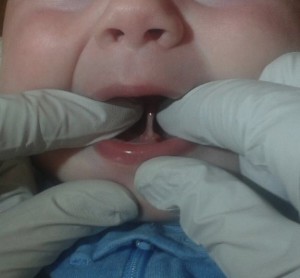The family in this video “met” with me from two different countries. This is the last few minutes of a consultation. The client is talking about meeting with a local IBCLC for follow up to our meeting.
I can do a virtual consultation with you no matter where you are on the planet! We are not limited by long-distance fees—only by time zones and a decent internet connection.
Ideally every breastfeeding parent and infant would have access to high-quality in-person lactation care. The reality is that many people do not have this available in their communities. Virtual consultations are just like in-person consultations except we’re not actually in the same room. They are appropriate for any type of breastfeeding challenges you may have including, latching difficulties, questions about tongue mobility, frenotomy care, sore nipples, milk supply or pumping difficulties. These consultations are not recorded. Continue reading

 Breastfeeding always hurt for first- time breastfeeder, Tina. She was given a nipple shield to help with the pain. And it did help. Even so, she knew a nipple shield was not a long-term solution. She kept trying to get rid of the shield. She hated the thing! But every time baby latched without it it, it resulted in intense nipple pain and wounds—her nipple was painfully creased after feedings as well. So, understandably, she continued to nurse with the shield.
Breastfeeding always hurt for first- time breastfeeder, Tina. She was given a nipple shield to help with the pain. And it did help. Even so, she knew a nipple shield was not a long-term solution. She kept trying to get rid of the shield. She hated the thing! But every time baby latched without it it, it resulted in intense nipple pain and wounds—her nipple was painfully creased after feedings as well. So, understandably, she continued to nurse with the shield. The following is a guest post from Beth Martin. Beth is a certified Nutritional Therapy Practitioner (NTP) and the owner of
The following is a guest post from Beth Martin. Beth is a certified Nutritional Therapy Practitioner (NTP) and the owner of  I advocate feeding children nutrient dense whole foods that naturally contain the macronutrients, vitamins, and minerals they need to grow and develop. Rice cereal does not fit into this paradigm as a first food, and here’s why.
I advocate feeding children nutrient dense whole foods that naturally contain the macronutrients, vitamins, and minerals they need to grow and develop. Rice cereal does not fit into this paradigm as a first food, and here’s why. 